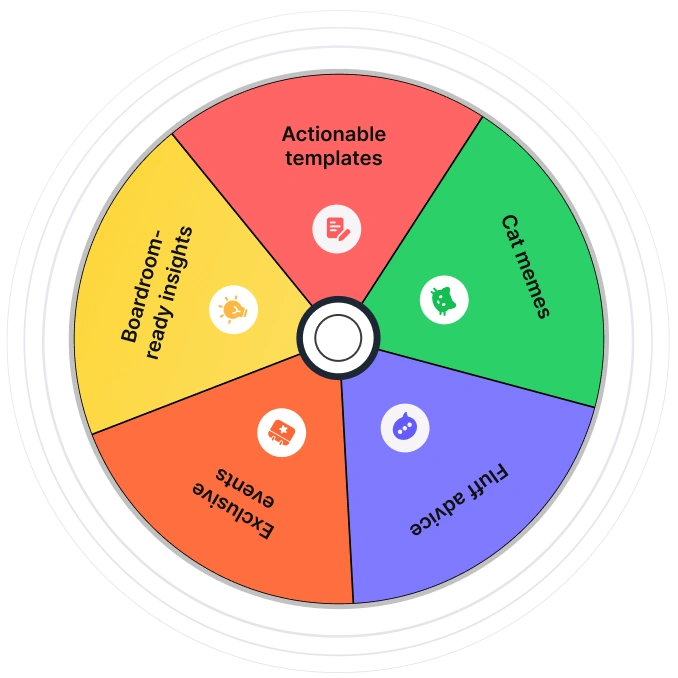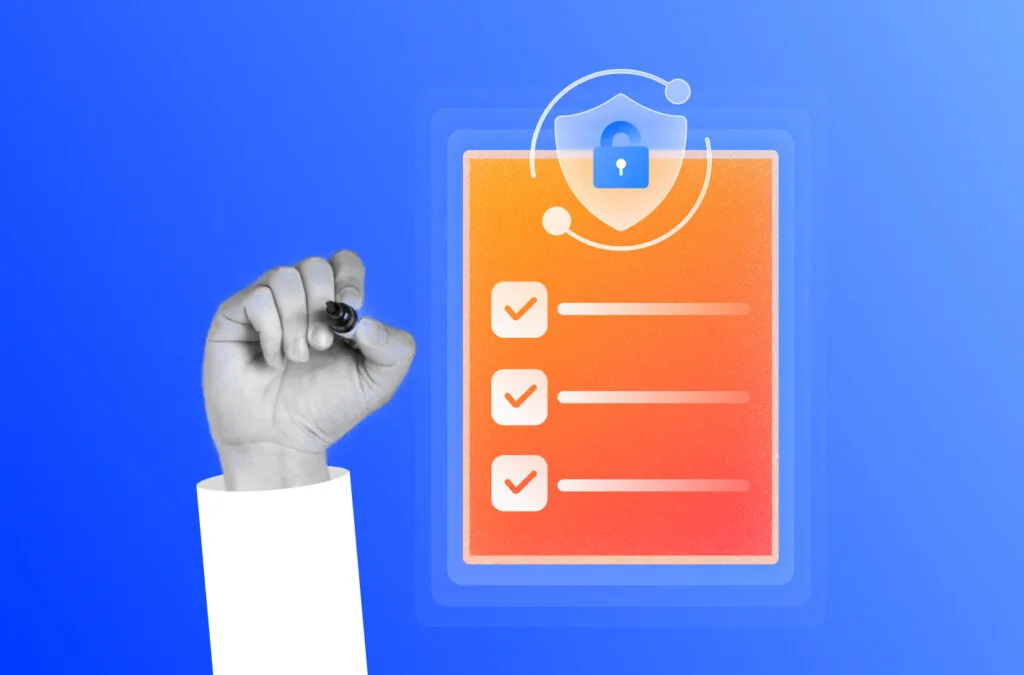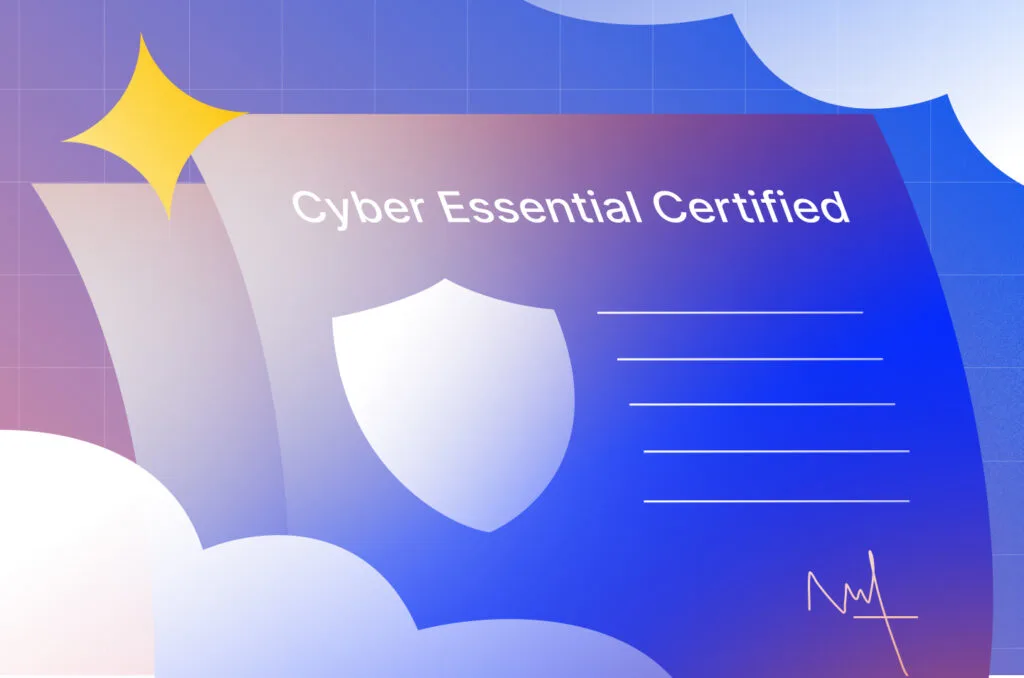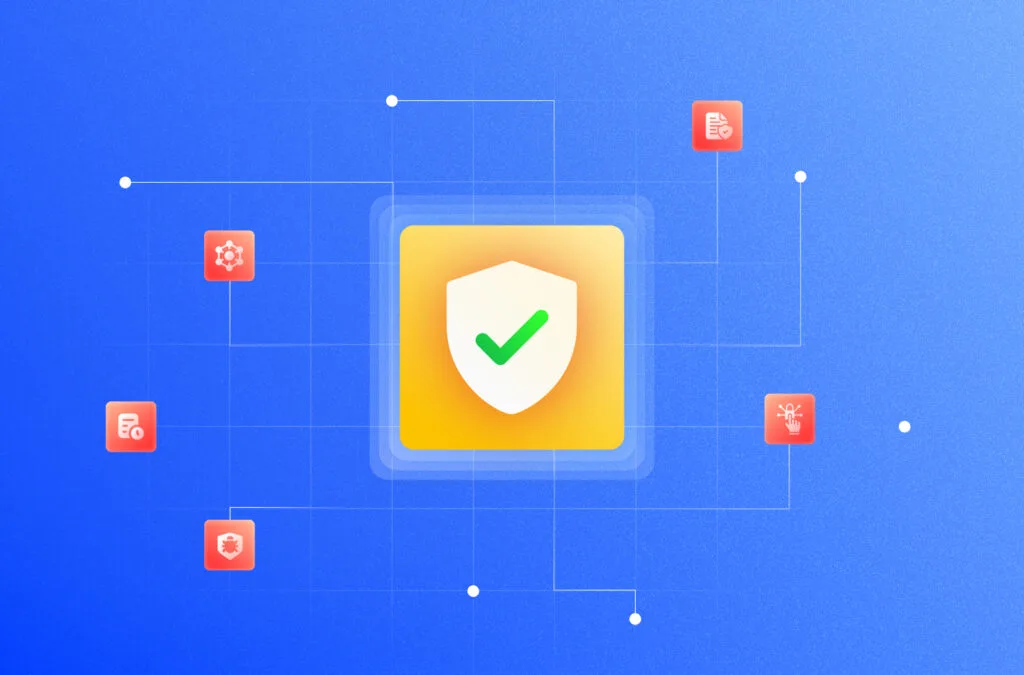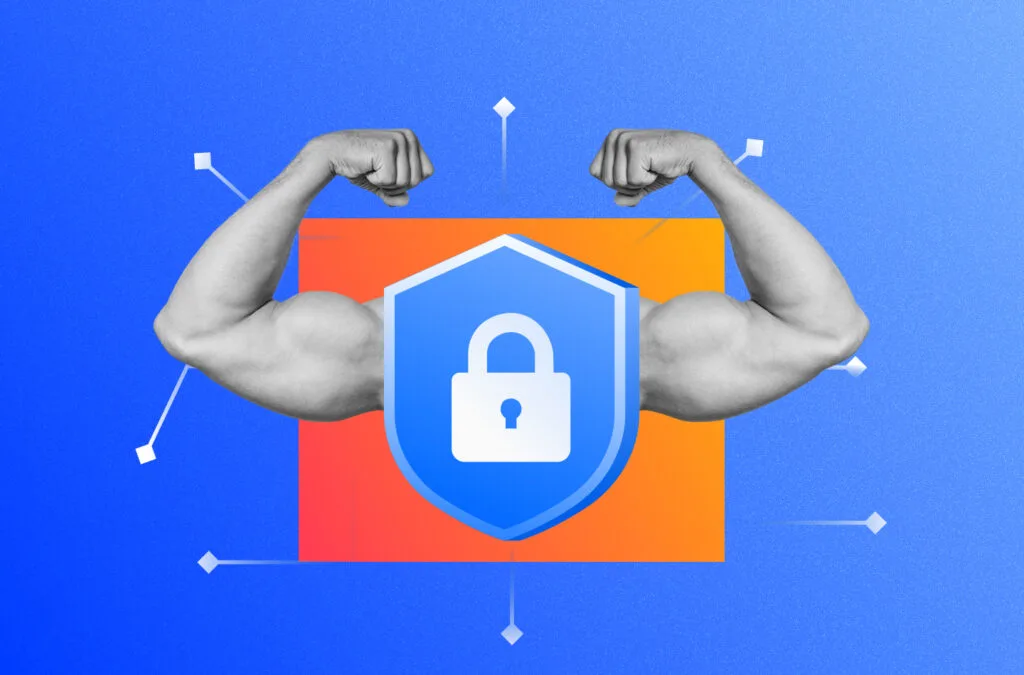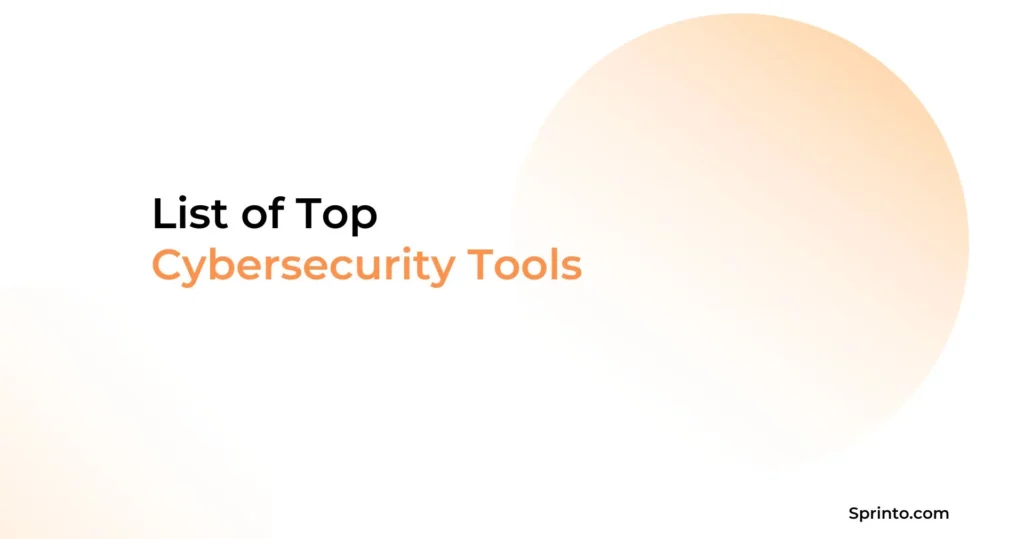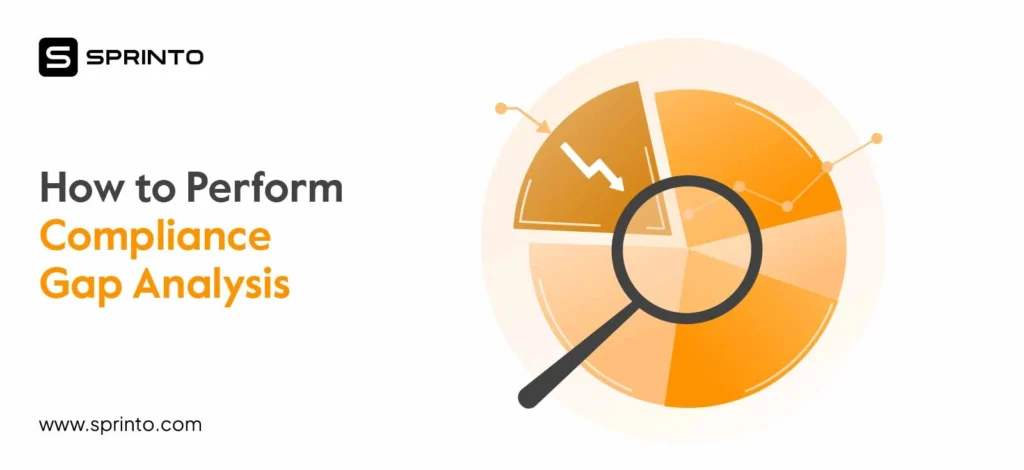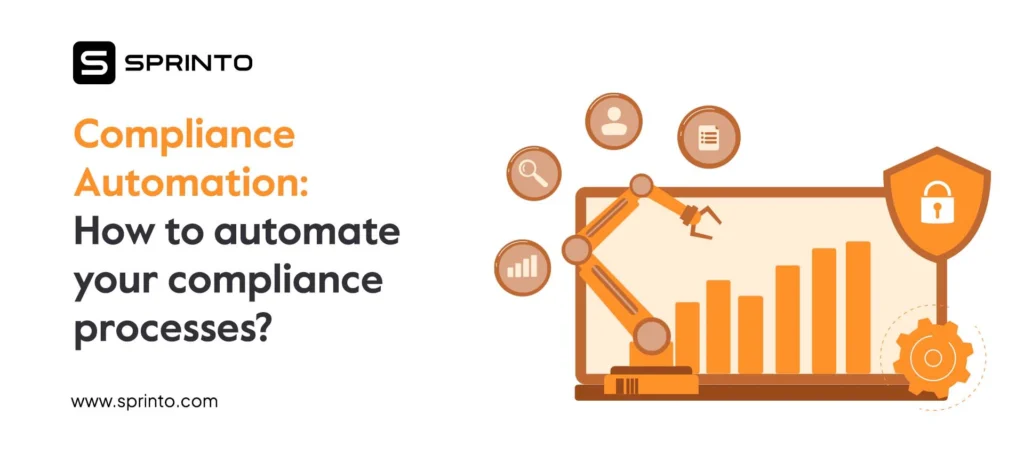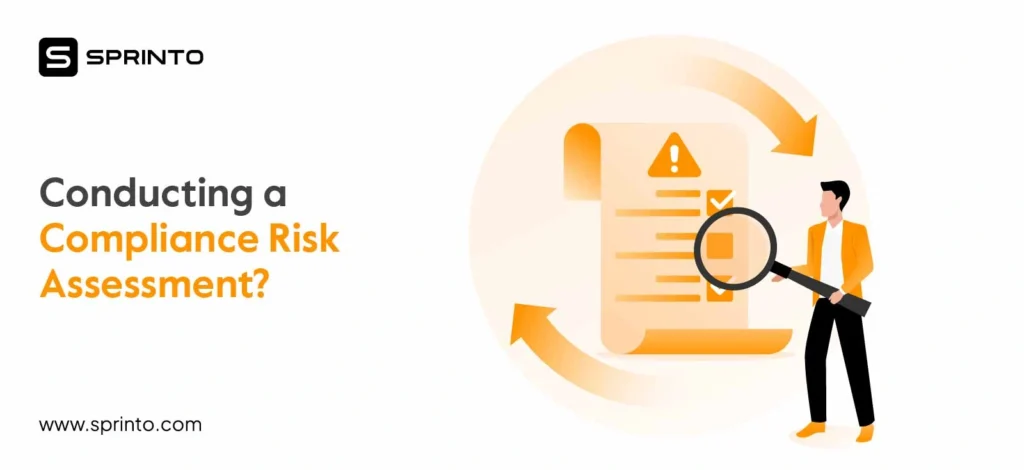Cyber insurance offers much more than protection alone. It covers expenses for things like, legal and investigative services, crisis communication and even compensation for those affected. For some companies, the absence of this coverage has meant shutting operations completely following a breach.
As global tensions rise, with various conflicts like Russia-Ukraine, Palestine-Israel, insurers are rethinking “acts of war” exclusions in their policies. For organizations, this means selecting the right cyber insurance policy becomes more important than ever.
Top 10 Cyber Insurance Companies
Cyber incidents are now becoming more common than ever (see the stat we mentioned above). And it’s not going to stop. Data Breach statistics will only present an upward trend in the days to come.
Hence, it’s advisable to team up with insurers with the best solution suite for your company. That said, Here are the 5 cyber security insurance companies you can consider:
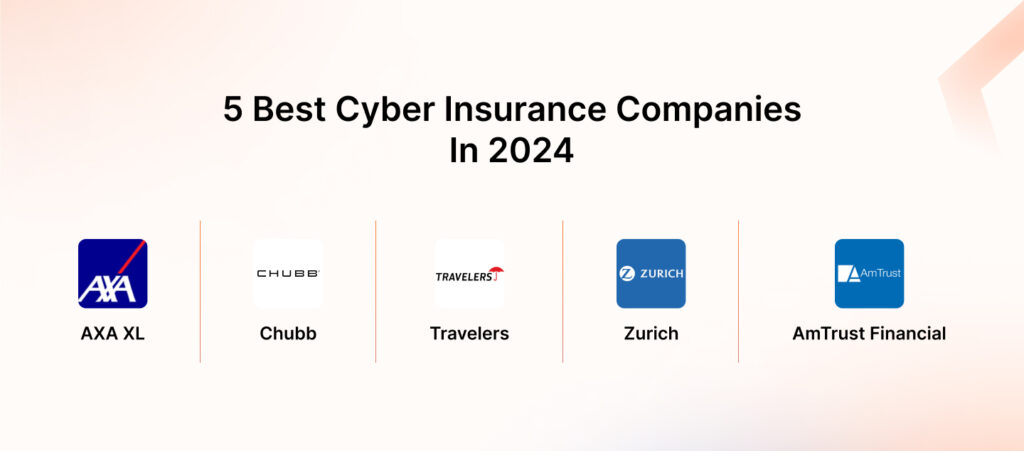
1. AXA XL
AXA XL is one of the cyber insurers in collaboration with Accenture Security, offers top-notch cybersecurity insurance, and its coverage focuses on three key principles:
- Flexible coverage for regulatory fines
- Proactive risk management
- Customer-focused claims process
AXA XL is particularly popular among financial businesses. Their extensive suite of first- and third-party coverage in the breach insurance market safeguards against
- Data breaches involving sensitive customer and business data
- Cyber extortion and ransomware
- Business interruption expenses
- Loss/destruction of electronic assets
- Data restoration
- IT forensics
- PR and notification costs
- Regulatory defence and reimbursement of fines and penalties
- Cyber extortion
| Maximum coverage | Not listed publicly |
2. Chubb
Chubb is one of the largest global cyber insurance providers. Their solutions and pricing will be based on your risk profile and the coverage options you need. This enables you to build out a near-custom solution.
Their cybersecurity insurance revolves around 3 key principles:
- Loss mitigation
- Incident response
- Risk transfer
Chubb cyber insurance offers 3 main products in its cyber insurance portfolio:
- Cyber Enterprise Risk Management (Cyber ERM): This is for businesses handling sensitive data. The policy offers customizable coverages to match each enterprise’s unique needs.
- DigiTech Enterprise Risk Management (DigiTech ERM): This is for companies in digital technology services, including IT consulting, software development, and data processing.
- Integrity+: Provides general liability and first-party cyber coverage, addressing errors and omissions, media issues, data security, privacy, and intellectual property infringement.
You can choose any product above by choosing your industry, whether manufacturing, law firms, financial institutions, life sciences, hospitals or others.
Impressive features of Chubb’s cyber insurance include breach coverage for:
- Legal costs
- Data loss protection
- Any kind of business continuity problems due to cyber events
- Human and programming errors or network security measures failure
- Regulatory investigations expenses
- Network or ransomware incidents
- Liability arising from Personally Identifiable Information (PII) breaches
- CyberAcuView adds an extra layer of security measures and awareness to their offerings on cyber protection
| Maximum coverage | $250,000 |
3. Travelers
Travelers is a great choice among cyber insurance for startups as it provides business access to cybersecurity experts at no extra cost, thus enabling them with the guidance needed to deal with edge cases even before a breach occurs and enhancing the security of your website or app.
Their cyber insurance coverage covers all the essentials in the event of a data breach, including:
- Forensic investigations
- Litigation expenses
- Regulatory defense expenses/fines
- Business interruption
- Cyber extortion
- Replacement of compromised software
- Crisis management expenses
| Maximum coverage | $1 million to $5 million |
4. Zurich
Zurich is one such cyber insurance provider with a noteworthy solution suite in the insurance industry. They have their experts assist you in devising strategic roadmaps and incident response services to secure your network.
Zurich’s cyber insurance is built for mid-sized businesses, small businesses, enterprises, freelancers, nonprofits, governments, and startups.
Key features of Zurich’s cyber insurance plans include:
- Coverage for lawsuits against your business
- Responsive customer service with 24/7 support.
- Ransom payments
- Notification expenses to state and federal fines
The Zurich cyber insurance providers services include:
- Cyber and Data Protection Training
- Audit and Compliance
- Penetration Testing (Ethical Hacking)
- Cyber Toolbox
- Crisis and Incident Management
- Cyber Quantification
- Virtual CISO
- Privileged Access Management
- Security Monitoring
| Maximum coverage | $25,000,000 |
5. AmTrust Financial
AmTrust Financial’s cyber insurance policies provide complete cyber coverage, including indemnification for legal fees and expenses. In a cyber breach, you can monitor the impacted data for a specified period.
When you explore the policy limits, you could choose addons that cover the cost incurred in recovering compromised data or repairing the breach in your systems.
Their product is designed to facilitate client reimbursement requests for data restoration costs and reputational harm. It includes provisions for gathering, assembling, and recollecting data from other sources or cyber policies to restore it to its pre-cyber breach level or condition.
The worldwide coverage includes:
- Information security and privacy
- Regulatory defence and penalties
- Website and offline media content
- Payment card industry (PCI) for card-based scenariosCyber extortion
- First party data protection
- Impact from business interruption
| Maximum coverage | $100,000 or below |
6. Beazley
Beazley is a specialist insurer with a strong focus on cyber risk. It offers comprehensive policies to protect against a wide range of cyber threats.
Key offerings:
- Provides a comprehensive service for data breach incidents, including notification, monitoring, and legal support.
- Offers coverage for technology errors and omissions, network security, and media liability.
Coverage features:
- Breach response services
- Regulatory defense and penalties
- Business interruption loss
- Cyber extortion
- Data recovery costs
| Maximum coverage | Not publicly listed |
7. Hiscox
Hiscox offers tailored cyber risk insurance designed specifically for small and medium-sized businesses. Their cyber insurance plans provide financial protection against the fallout of data breaches, cyber extortion, and system damage.
Beyond just covering financial losses, Hiscox policies are built to help businesses maintain continuity during unexpected disruptions. Policyholders also gain access to skilled incident response teams and cybersecurity tools, ensuring they’re prepared to prevent, mitigate, and respond to threats effectively.
Coverage features:
- Data breach response and notification
- Cyber extortion payments
- Business interruption loss
- Data recovery and system repair
- Legal and regulatory expenses
| Maximum coverage | $2,000,000. |
According to Hiscox, higher limits can be considered upon request if required by contract.
8. CNA Insurance
CNA Insurance provides comprehensive cyber liability coverage to defend organisations against cyber threats.
CNA Insurance’s proactive effort aims to assist businesses in improving their cyber resilience. The program comprises customised training courses, simulated phishing activities, and thorough risk assessments to help discover vulnerabilities and enhance overall cyber risk posture.
- Covers the costs of contacting affected parties, credit monitoring services, and public relations efforts to mitigate reputational damage.
- Provides financial assistance for income lost due to system failures or operational disruptions caused by cyber events.
- Addresses ransom payments and associated expenditures in ransomware or other extortion instances, including professional negotiating services.
- Coverage includes legal defence, regulatory enquiries, and penalties for noncompliance with data protection rules.
| Maximum coverage | Not publicly listed |
9. The Hartford
The Hartford offers comprehensive cyber insurance solutions tailored to help businesses effectively manage and recover from cyber incidents, minimizing financial and operational impact.
They offer something unique called the:
CyberChoice First Response®: A signature offering that provides immediate, expert assistance when a cyber incident occurs. This includes direct access to a breach response team comprising forensic experts, legal advisors, and crisis management professionals to guide businesses through every incident response and recovery step.
- The insurance covers fees for credit monitoring and public relations to mitigate reputational damage.
- Provides financial compensation for lost income owing to operational downtime caused by cyber attacks.
- Covers additional costs required in restoring normal operations.
- Reimburses fees for retrieving, repairing, or recreating data that has been compromised by cyberattacks or system breakdowns.
- Protection against mistakes, oversights, or negligence in technology services, offering coverage for the unique risks faced by tech businesses.
Policyholders also benefit from an experienced breach response team, including forensic experts, legal advisors, and crisis communication specialists, to help navigate incidents with confidence.
| Maximum coverage | Not publicly listed |
10. The BCS Financial
BCS Financial specialises in cyber insurance solutions that are tailored to the healthcare industry’s specific concerns. Their policies address sector-specific risks, providing excellent protection from cyber threats and regulatory exposures that healthcare companies commonly face.
BCS Cyber Liability Insurance is one of its main products. This insurance is specifically tailored to healthcare businesses and covers risks such as data breaches, ransomware attacks, and regulatory penalties. It includes tailored solutions for protecting patient data, ensuring compliance with healthcare legislation such as HIPAA, and reducing financial losses caused by cyber catastrophes.
The coverage includes:
- Includes credit monitoring services to assist safeguard patients’ sensitive information.
- Reimburses income lost as a result of operational downtime caused by cyber incidents, maintaining the availability of healthcare services.
- Covers legal defence and settlement costs in disputes involving data breaches.
- Fines and penalties for violating healthcare data privacy rules, such as HIPAA or GDPR, are reimbursed.
- Covers the costs of securing systems and preventing such incidents.
| Maximum coverage | Not publicly listed |
Top cyber insurance requirements you need to know
To get top-notch cyber insurance today, complete a detailed questionnaire explaining your security tools and processes. However, note that the cyber insurance criteria differ among providers and policy types. Yet, there are 5 common requirements businesses must meet to qualify for coverage:

1. Do you have Multi-Factor Authentication?
Multi-factor authentication is a multi-step login process that goes beyond just a password. For example, let’s say for a while you only had a strong password, but from now on, along with a password, users might need to enter a code sent to their email, answer a secret question, or scan a fingerprint to open important files.
This is why having an MFA can help you avoid expensive fines and damages in the event of a data breach.
2. Do you have access controls in place?
Access control ensures that users are who they claim to be and have the appropriate access to company data. At its core, access control selectively restricts access to data, focusing on data security with two main components: authentication and authorization.
There are three commonly used frameworks:
- Discretionary Access Control (DAC)
- Role-Based Access Control (RBAC)
- Attribute-Based Access Control (ABAC)
Implementing these controls is made easier with a compliance monitoring platform like Sprinto. It simplifies and automates critical systems access reviews at scale, helping you implement zero-trust security compliant with your preferred security frameworks.
Manual access management methods are time-consuming, costly, and prone to human oversight. While prioritizing convenience over compliance may seem tempting, it can lead to increased risks, security vulnerabilities, and potential audit failure.
Sprinto, on the other hand, ensures robust safeguards through adaptive access policies, flexible review mechanisms, and real-time access visibility—all within a user-friendly interface. This way, you can be eligible to get cyber insurance in no time!
3. Do you conduct risk assessments regularly?
In the risk assessment process, employers review and evaluate their organizations to:
- Identify processes and situations that may cause harm, particularly to people
- It determines how likely each incident will occur and how severe the consequences would be with risk analysis
Insurance companies commonly request a risk assessment to grasp your company’s risk profile.
This assessment is crucial for identifying vulnerabilities that could expose the business to cyberattacks. This is why regular risk assessments help maintain a proactive approach to cybersecurity.
How can Sprinto help?
Sprinto’s compliance-integrated risk assessment model automatically links action items to process owners, alerting them whenever a risk is identified. The centralized dashboard provides you with immediate visibility into your compliance tasks.
It also notifies process owners if efficiency metrics fall outside the desired range. When you leverage these features, you can ensure eligibility for cyber insurance.
Boost compliance, ensure cyber insurance eligibility
4. Are you providing security training to your employees?
Cybersecurity awareness training is a strategy employed by IT and security professionals to prevent and reduce user risk. These programs aim to help users and employees grasp their role in preventing information security breaches. In Sprinto, there’s a built-in check for security training reminders.
This check activates and becomes “Due” when there’s a pending security training campaign request from the admin. If acknowledgments are pending seven days before the due date, it becomes “Critical.”
If the due date passes without completion, it goes to “Failing.” The check status is marked as “Passing” once all pending training and tests (if applicable) are completed. This ensures a streamlined approach to security training within your organization.
5. Regular vulnerability assessments
Insurers may require businesses to conduct regular vulnerability assessments to identify and address system weaknesses threatening data security. This practice offers several benefits to your company, including the early and consistent identification of threats and weaknesses in IT security.
Sprinto advantage:
Sprinto provides a real-time view of your vulnerabilities through continuous testing and control tracking. This ensures swift threat detection and proactive mitigation beyond periodic PEN tests and reactive fixes.
5 reasons why your business needs cyber insurance
Cyber insurance helps cover costs associated with damages and recovery following a breach incident.
There’s more to cyber insurance than helping business owners manage their risk exposure and offering financial aid for a data breach, ransomware attack, or any other cybersecurity incident. And they are:
1. Restoring brand reputation
Repairing brand reputation damage is always challenging, especially for small businesses. Unlike larger brands with a better chance of bouncing back, your org could face permanent closure after a cyber incident.
As an org, even if you can recover from the financial loss, the damage to your brand could become almost irreversible.
Building trust, once broken, is difficult to repair. Covering your business with cyber liability insurance can help minimize the effects of a cyber incident to a great extent and shield the brand.
2. Cyber insurance has extensive coverage
Don’t underestimate cyber insurance plans—they offer more coverage than you might think. Plans under “first-party” insurance offer reimbursement for business disruption, breach notification expenses, legal expenses, and fees to public relations agencies to repair brand image.
Their breach coverage also extends to instances in
- Business interruption coverage and losses
- Digital asset destruction
- Network security liability and privacy liability
- Data retrieval and system restoration cost
- System failure
- Contingent business interruption
- Social engineering and cybercrime
- Cyber extortion threats, extortion payments, or ransomware
- Security breach response and remediation expenses
This level of coverage from your cyber liability insurance enables you to continue business operations during/after a severe hack. This is vital for smaller companies as their runway and burn appetite is shorter than larger businesses.
3. Hackers are highly organized
Cybercrime has evolved into a significant industry, where hackers aren’t just lone wolves but sophisticated teams from countries like China, Russia, and North Korea.
These attack squads operate strategically, often with enough information required to focus their brute force attacks on specific sections of the target’s security network even before the attack begins.
Their attacks involve deep infiltration and extended dwell times, showcasing the complexity of their strategies.
Cyber insurance will not defend your network; it is your safety net. You sleep peacefully knowing, ‘When the sun shines tomorrow, my business will still exist.’
4. Forensic investigative support
After a cyber attack, your company needs to undergo a thorough investigation from forensic services, tracing the source of vulnerability. This process, known as cybercrime investigation, involves analyzing and recovering forensic digital data from the networks affected—be it the Internet or a local network. The goal is to pinpoint the authors of the digital crime and understand their true intentions.
Whether the attack stems from compromised credentials or a phishing email, the key is for businesses to address the issue promptly and implement preventive strategies to avoid a repeat instance.
For example, in the U.S., agencies like the FBI, U.S. Secret Service, Internet Crime Complaint Center, or the Federal Trade Commission might handle cybercrime investigations, depending on the case.
Meanwhile, in countries like Spain, the national police and civil guard take charge of the entire process, regardless of the type of cybercrime.
To assist in this process, a cyber insurance policy helps by reimbursing the costs of the forensic investigation of the attack.
How much does cyber insurance cost in 2024?
The cyber insurance cost in 2024 hinges on your business type and the cyber risks you face. A study by AdvisorSmith Solution Inc. shows that businesses pay an average of $1,500 per year for $1 million coverage, and this includes a deductible of $10,000.
Insurance premium costs depend on the nature of the business in context, the volume of sensitive information stored, your current security posture, your breach history, and more. The policy premium also waivers if your organization stores/processes banking or credit card relation information.
On the bright side, even with expensive cyber insurance costs, 3% of issuers intended to buy less coverage in 2023 than in 2022.
Most (82%) stick to the same coverage, and 16% plan to buy more. Interestingly, these intentions remain steady even for those dealing with significant increases in cyber insurance premiums.
Takeaway
Don’t wait until it’s too late to get cyber insurance. Regarding the cost of cyber insurance, a key tip is to focus on preventing and managing cyber threats early on to reduce risks and save on coverage.
Similar to other business insurances, having fewer claims against your business yields better premiums over time.
Start by educating your employees about cyber threats. If your team recognizes potential attacks and knows what suspicious messages to avoid, they are less likely to fall prey to the attack instance.
You can use tools like Sprinto, a compliance automation platform, for 24/7 monitoring. It helps you monitor your assets and security controls in real-time. Automated notifications ensure that the stakeholders responsible for maintaining security are informed when the effectiveness of security controls is/are at levels below the desired efficiency.
So, prepare for the worst-case scenario with cyber insurance and Sprinto.
FAQs
1. What’s not covered by cyber insurance?
Fraudulent activities, like insurance fraud, aren’t covered. For example, if an employee is involved in a cyberattack, it might not be covered. Some companies may cover damages caused by rogue employees acting against your business. Also, you will only be covered if you inform the insurer of an upcoming cyberattack. Most cyber insurance companies usually do not cover criminal investigation costs.
2. How should you evaluate cyber insurance companies?
To find the best cyber insurance companies, involve your in-house security team. Prioritize customer needs in the evaluation process, paying attention to factors like convenience, financial strength ratings (such as AM Best), quality of customer satisfaction, company size, minimum premiums, policy variety, and the overall experience as a policyholder with a specific provider.
3. What are the most frequent cyber insurance claims?
The most frequent cyber insurance claims are ransomware and social engineering fraud. The most common reasons for cyber liability insurance policy claims include hacking, ransomware, phishing, and employee negligence.
4. Should small businesses be concerned about cyber risk?
Yes, small businesses should indeed be concerned about cyber risk. Contrary to belief, research indicates that smaller companies have become preferred targets for cybercriminals in the past two years. This is because breaching their security is often easier, and payouts happen quickly, especially in cases like ransomware.
Cybercriminals find it more efficient to target numerous smaller companies, each with a lower ransom demand, rather than hacking one large company for a substantial sum. This approach allows them to achieve a faster return on investment.
Meeba Gracy
Meeba, an ISC2-certified cybersecurity specialist, passionately decodes and delivers impactful content on compliance and complex digital security matters. Adept at transforming intricate concepts into accessible insights, she’s committed to enlightening readers. Off the clock, she can be found with her nose in the latest thriller novel or exploring new haunts in the city.
Explore more
research & insights curated to help you earn a seat at the table.






